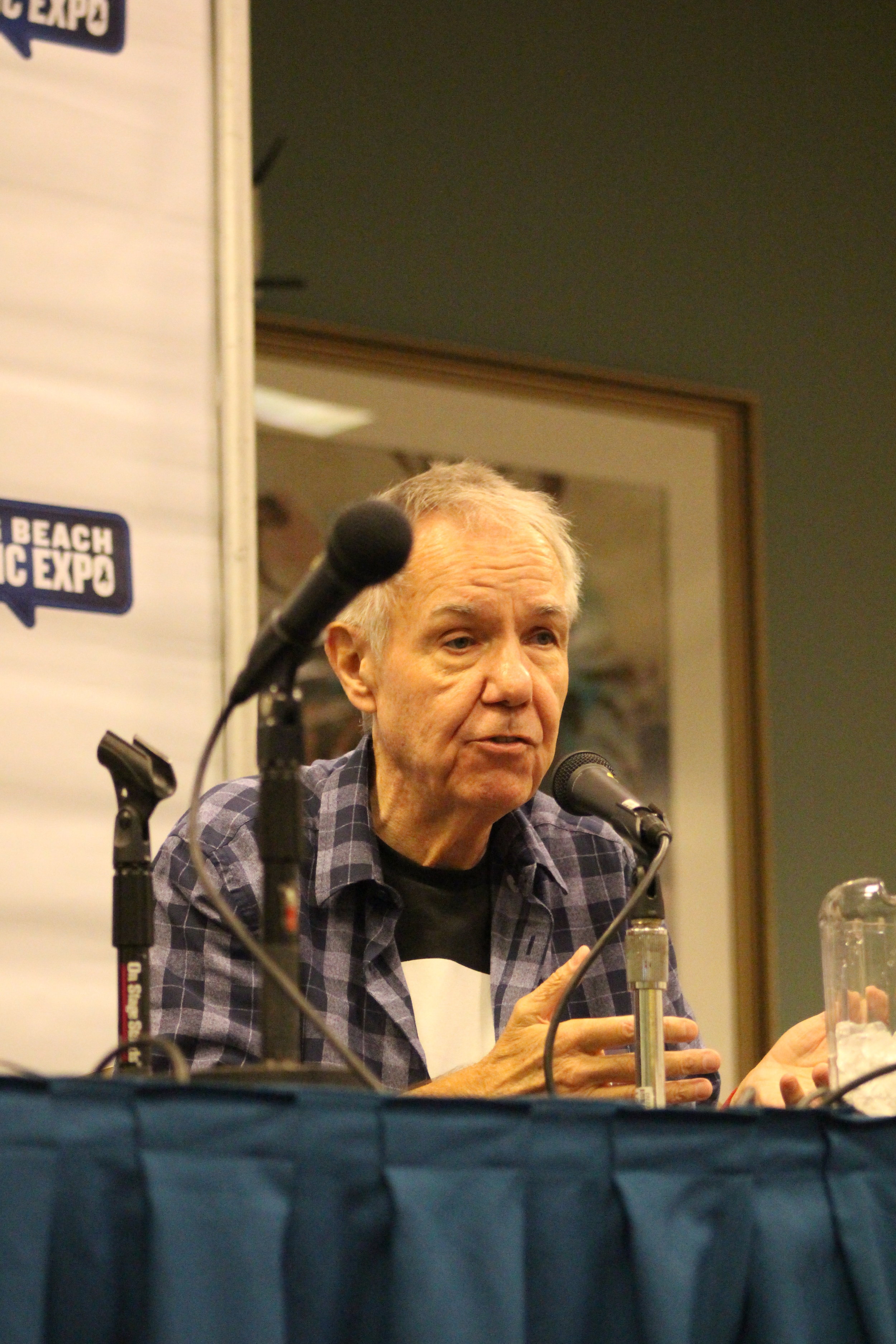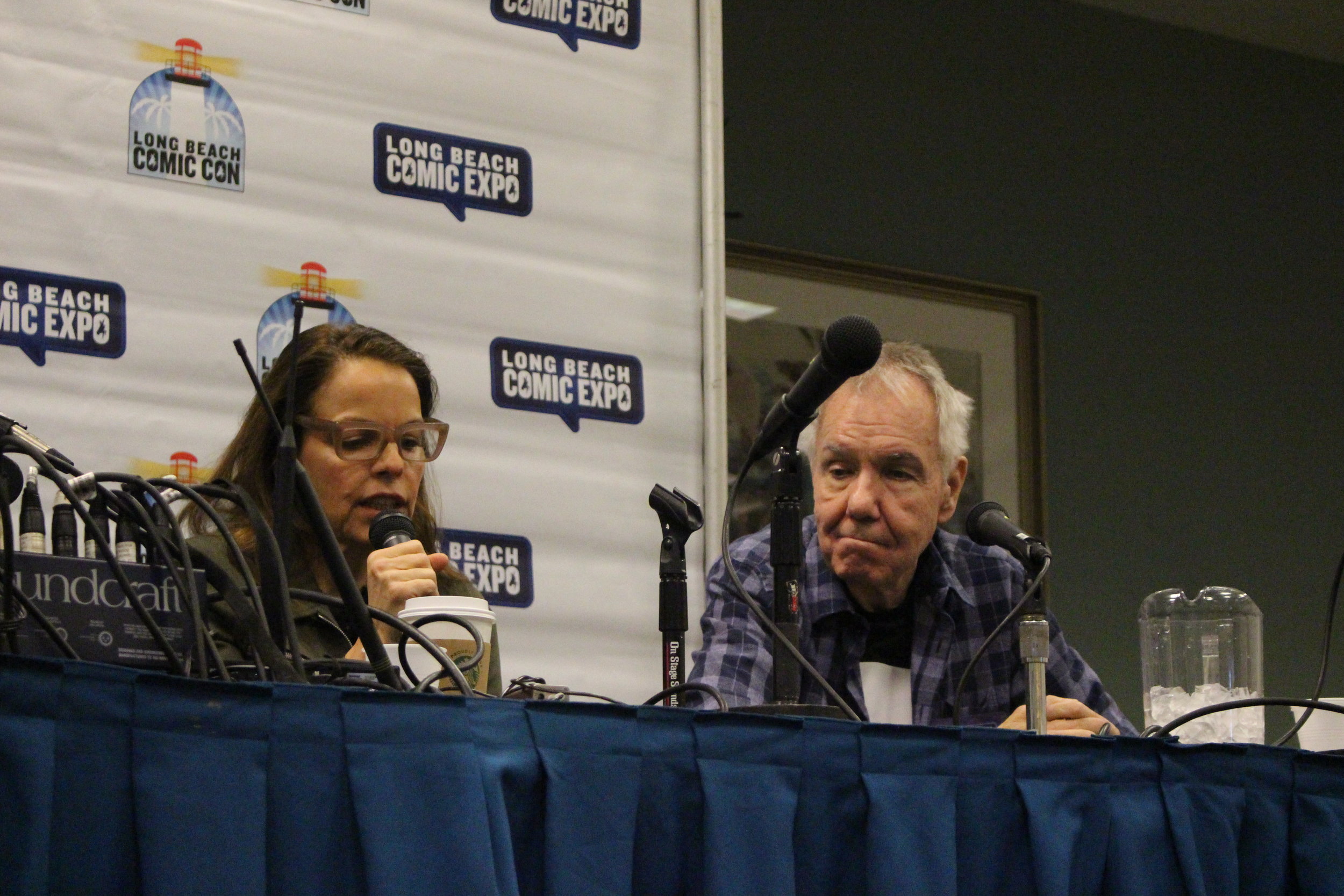Long Beach Comic Expo 2019

Author: Ariel Landrum
One of the most magical moments at any convention is witnessing a well-known creator geek out. At the Disney-sponsored Captain Marvel: Origins panel on Saturday, February 16, 2019, at Long Beach Comic Expo, fans hoped to learn more about this new heroine taking over the Marvel Cinematic Universe. What unfolded were endearing moments of novelist Margaret Stohl fangirling over sharing the stage with legendary comic book author Gerry Conway.
As the moderator of the panel introduced the speakers, Stohl added with her introduction how shocked she was that she was going to get a chance to pick Conway’s brain regarding his inspiration, writing choices, and overall experience as co-creator of the female Captain Marvel. Taking the mic, becoming the new moderator, she faced Conway and began to fire away.
Conway reported that back in the ‘70s, he and the comic book community felt the business was dying, and he realized the dying was partly because they were not attracting a female audience, nor were they creating a cultural impact. Working late nights with John Buscema and Stan Lee, the three figured out that the best way to attract girls to comics would be to create a strong heroine.

Conway didn’t want to create a subservient character, or whose sole purpose was to be someone’s love interest. Looking through existing characters in the Marvel universe, he realized that Carol Danvers could become a credible female character, as she was already an Air Force officer. Adding to her backstory, he placed her as magazine editor after she retired from military service. This was a distinct choice because he wanted to maintain the image of being in power and charge versus being simply a reporter.
Comparing her to other noteworthy heroines, such as Wonder Woman from rival company DC, Conway realized that she needed to become a mentor for other females. Her backstory already aligned her with the Spider-verse, so she became a Mary Jane Parker mentor. Conway closely focused their interactions on gearing away from any discussions around men and relationships, and at the panel joked that his writing would have passed the Bechdel test.
Impressed by his focus on female empowerment, Stohl asked what inspired his desire to write female characters, as at the time he had created Powergirl, and if writing them felt like “picking the losing straw.” With a chuckle, Conway stated that he enjoyed and enjoyed writing for the underdog, and female heroes are often seen in that light. He also added that he received inspiration from women in his life who are creative and take charge.
As Stohl pondered these responses, the designated moderator slowly took some control of the panel to ask Stohl about her experiences writing such an iconic character. He also noted that she may have had some experience regarding the writing of the upcoming film.
Jokingly Stohl stated that she could neither confirm nor deny that she knew anything regarding the film and that if she blinked the wrong way, the high powers of Disney would come raining down on her.

Stohl stated that her experience centered on writing novels geared towards young adults, often female-driven family dramas. When approved to take on Captain Marvel, she was asked by Joe Quesada to create an elevator pitch of the character’s origin. This was a tall order, as the character had undergone almost 50 years of growth, change, and trauma. Stohl was fearful she couldn’t do it.
It wasn’t until an all-night brainstorm at Marvel with other creators that she realized Marvel stories are family stories. Stohl reported that what makes Marvel special is the focus on the human side of the superhuman. With this realization, she focused on the traumas the Danvers experienced and the healing it took for her to shift back to the protagonist of her story.
Pointing back to Conway’s statement regarding social change, she stated that women often must make themselves known in the room. In the real and comic book worlds, females are often placed in spaces as side characters or left unseen. She concluded that the heroine’s journey differs from a hero’s journey in that male protagonists are assumed, and given, unquestionable permission to start their journey. A heroine must first accept that she is even allowed to have a journey at all.
Both Conway and Stohl ended the panel stating that the true origin of the character was that she made herself known in the room. Though given her powers, she took hold of being a hero.
Writer’s Note: there were no name cards on the table or names on the program, so I could not obtain the moderator’s name for this panel.

